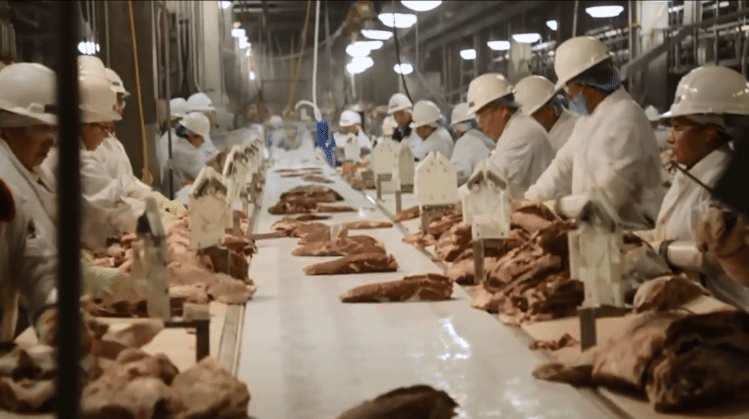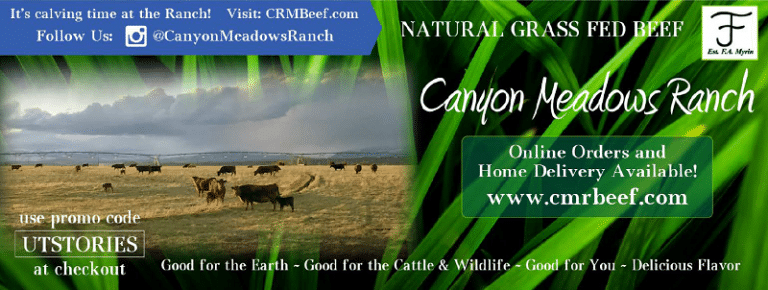Utah’s Largest Meat Processing Facility (owned by JBS) is under investigation by the SEC for price-fixing.
JBS USA has a regional beef processing plant located in Hyrum which employs over 1,500 people to process up to 1,700 cattle per day into cuts of beef that end up on grocery store shelves. A total of 287 workers in the Utah facility just tested positive for Covid-19 last week. Many more family members of the workers tested positive, which was the major reason for the recent spike in Covid-19 cases in northern Utah. JBS is one of the biggest meat processors in the world. Their largest operation is located in Greeley Colorado, where they have both the largest cattle feedlot in the U.S. as well as the largest meat processing facility. As of May 18th, the Denver Post reported that the 8th worker from that plant had died from Coronavirus.
All over the United States massive meat processing facilities have been the hotspots for coronavirus outbreaks but there is other news concerning JBS that isn’t widely reported. They are currently under investigation by the SEC for price-fixing.
When just four companies control nearly 80% of the market for beef, competition and a free market become next to impossible. Ranchers know this, and they have been fighting for changes for years, but political leaders have either ignored the small ranchers or have been slow to respond.
The PRIME Act
For the past four years The Processing Revival and Intrastate Meat Exemption Act, or PRIME Act, has failed to pass in Congress. The PRIME Act would give individual states the freedom to permit intrastate distribution of custom-slaughtered meat. This way beef, pork, goat or lamb could be sent directly to consumers, restaurants, hotels, and grocery stores.
This bill was introduced by U.S. Senators Angus King (I-ME) and Rand Paul (R-KY) in 2018. The bill addresses two issues. First, there is a growing demand by consumers to buy locally-produced meat. Customers want to see and visit the farms where their meat originates. Second, the bill could aid small ranchers and rural ranching communities by allowing them to bypass the massive processing expense if they wish to sell directly to their customers.
Shayn Bowler is the owner of Utah’s Natural Meat. He was on the Utah Stories podcast where he addressed this problem. “Right now I’m allowed to do everything with my animals except harvest them. I can butcher them, process them, store them, age them, but currently, I need to pay to put them on a truck to send them to a licensed facility to have them killed then brought back to me. This is a waste of time and money. I could do it just as safe as they can.”
Bowler added that if he could slaughter his own animals he could pass on the savings to his customers, and it could have a huge impact on the entire industry. Instead, the law has not changed, but instead the major meatpackers control and dominate the market and set prices for most ranchers.
The majority of ranchers in the state of Utah don’t operate like Utah’s Natural Meat, but instead, sell their meat to a feedlot buyer or directly to the slaughterhouse. While beef prices have been skyrocketing in stores, ranchers are getting paid less than ever for each head of cattle due to the glut of supply of cattle due to coronavirus-caused closures of meat processing facilities.
The system is broken. It needs to be changed. It makes no sense that these facilities are so large and are so integral to our food supply. Joell Salatin said words to the effect on the Joe Rogan podcast in May, 2020. Salatin operates one of the largest pasture-raised beef operations in the United States at his Polyface Farms, located in the Shenandoah Valley of Virginia.
RELATED CONTENT:
Why Are Beef Prices Skyrocketing? Can Utah Ranchers Survive?
How to Succeed in Farming on Very little Land in the 21st Century
Farmers Feeding Utah: Utah Farm Bureau launches program to support farmers and feed those in-need







